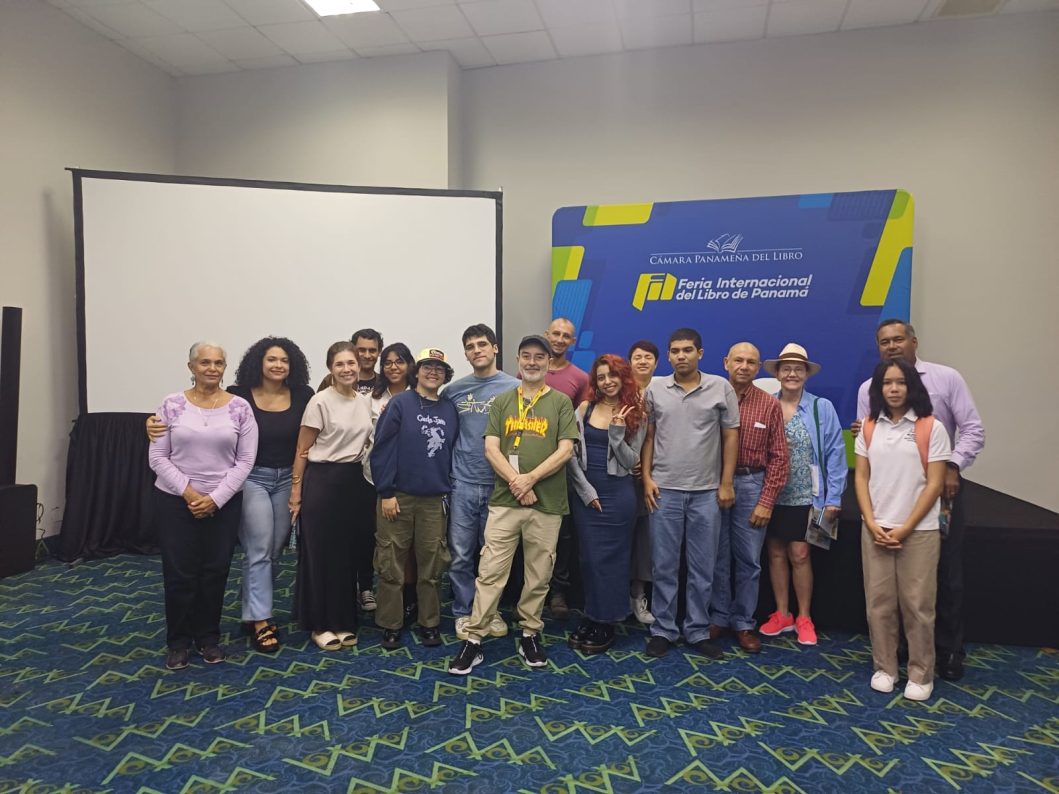IAF attended the Panama Book Fair and co-hosted several activities within the event. On August 14th, IAF held a workshop for illustrators with Marcelo Otero, a professional illustrator and member of ADA, the Argentine organisation for artists and IAF member.
The well-attended workshop focused on the diverse employment opportunities available to illustrators, which includes board game design, children’s book illustration, technical and art book illustration, as well as work in comics and magazines. Additional career prospects were identified in fields such as advertising, animation for audiovisual productions, and technical or industrial design projects.
Marcelo Otero, alongside Fernanda Mendoza, the IAF’s consultant for Latin America, underscored the crucial role of national associations in representing authors and safeguarding their rights. They stressed the importance of illustrators being well-informed of their rights conferred by intellectual property laws to ensure the negotiation of fair and equitable contracts.
Furthermore, as part of the Panama International Book Fair, IAF organised the International Copyright Seminar for the third consecutive year, in collaboration with the World Intellectual Property Organization (WIPO), International Confederation of Societies of Authors and Composers (CISAC), International Federation of Reproduction Rights Organizations (IFRRO), the International Federation of Phonographic Industry (IFPI), International Confederation of Audiovisual Authors (AVACI), FILAE, and the national collective management organiszations from the publishing, music, and audiovisual sectors.
During the two-day event, national and international experts analysed and discussed the challenges that authors currently face in relation to generative artificial intelligence. They also reviewed the strategies these organisations are adopting to protect their members’ rights and examined the ongoing legal cases addressing these issues.
The experts unanimously agreed that creations generated by artificial intelligence, including prompts, should not be recognised as works, as they lack the fundamental element of human creativity.
Other topics of discussion included the necessity of implementing private copying provisions in Latin American legislation, the right to remuneration for authors of audiovisual work, particularly concerning the use of their works on digital platforms and the importance of increasing awareness about the right to remuneration for public lending, especially in Panama, where this right is already recognised by the law.

